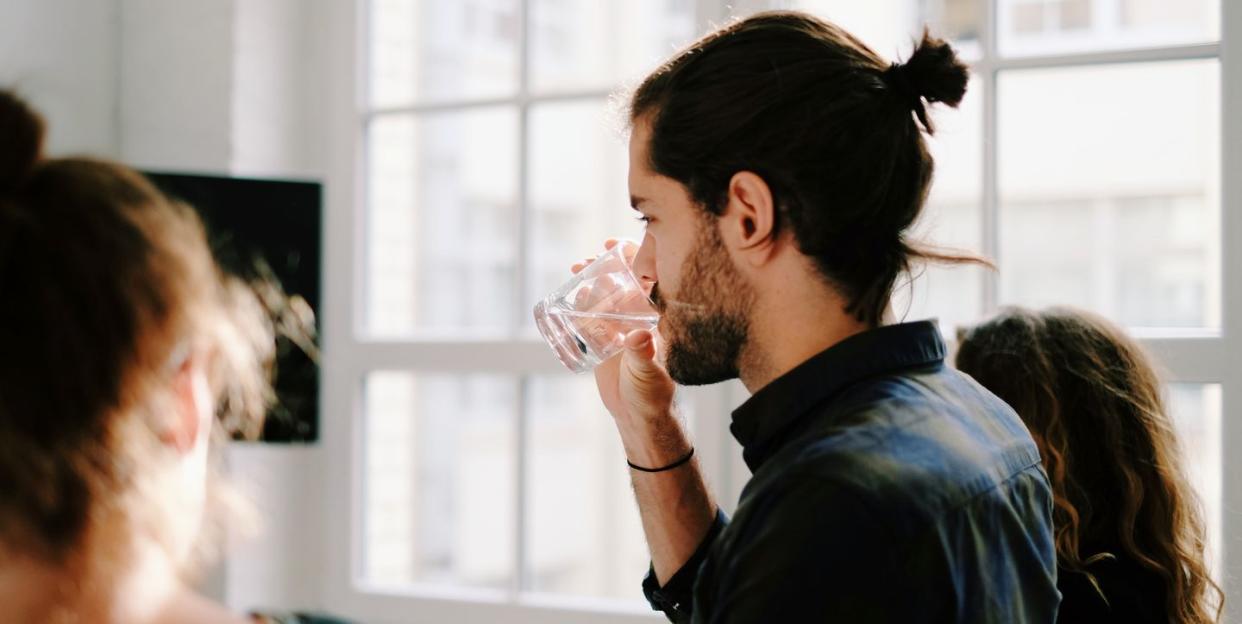Exactly How Much Water Should You Drink In a Day?

If you’re looking for a blanket recommendation on exactly how much water you should drink every day, you’re going to be disappointed, but stay with us. “Like everything with nutrition, it seems like it should be simple, but it’s not,” says nutrition expert Amanda Baker Lemain, M.S., R.D.
That “rule” to drink eight, 8-oz glasses of water a day doesn’t have a lot of scientific evidence behind it, but Lemain says “it’s not a bad place to start.” The National Academies of Sciences, Engineering and Medicine go a little higher, saying that men “who appear to be adequately hydrated” consume about 125 ounces a day (91 for women). But they acknowledge that about 20 percent of your day’s hydration comes in through food, which is really hard to count.
Everybody is different, and for the most part, every day is different, so your hydration needs fluctuate. You may need more than average if you’re in a hot and humid environment, if you’re at an elevated altitude, or if you’re an athlete who works out harder than the average person, Lemain says.
So the new rule of drinking water is to stop thinking that there is a hard and fast rule about drinking water. Instead, follow these guidelines:
If you’re thirsty, drink. The National Academies states that “the vast majority of healthy people adequately meet their daily hydration needs by letting thirst be their guide.”
If you’re hungry, you might need to drink, too. “If your goal is weight loss, then drinking a little more water may be helpful with that,” Lemain says. “Many people mix up hunger and thirst cues. I often see with my clients that when they’re well hydrated, mindless snacking decreases.” Not only does water help you satisfy your real urge (thirst, not hunger), but drinking water creates a pause between “I’d like something to eat” and eating it, during which you might realize you’re just bored or looking for a mindless munch. It also might help make you feel full so you don’t reach for a snack (“but that won’t last for long,” she says).
Check your urine. “You should be going to the bathroom regularly,” says Lemain. You often hear that a pale yellow color-but no darker than that-indicates you’re well hydrated. It’s not law, she says, but that, too, is a useful place to start. Just remember that some things naturally change the color of your urine. Multivitamin supplements can turn it a bright yellow, and your first pee of the day is usually darker than the rest.
“Do I think anyone needs to be pounding those giant jugs of water? Probably not,” Lemain says. You can overhydrate, which can lead to blood dilution and low levels of sodium (that’s the hyponatremia you hear about happening to some runners who drink too much over many hours on a marathon course). “As long as you’re a healthy person and listening to your internal cues, then that’s pretty rare.”
Your body is pretty good at telling you what you need. The trick to getting the right amount of water in a day is listening to what it tells you.
('You Might Also Like',)

